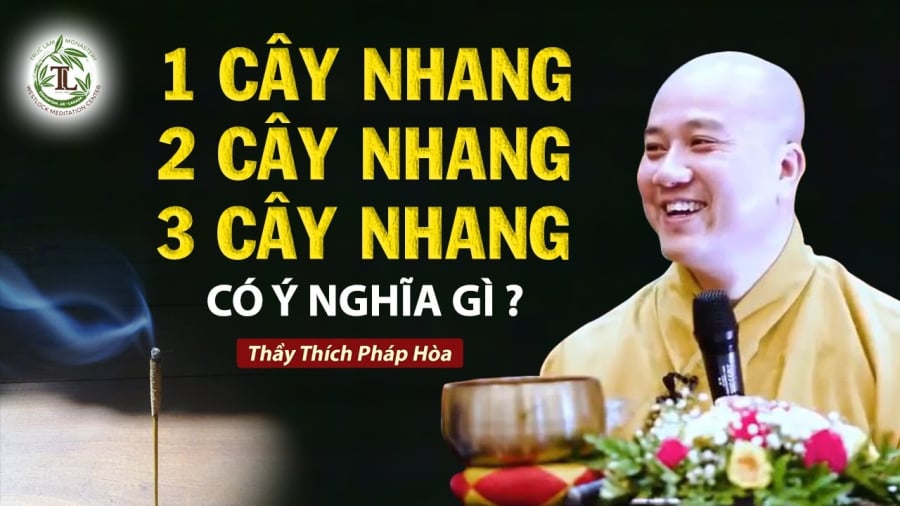The Spiritual Significance of Lighting Three Incense Sticks
In Feng Shui and East Asian culture, the number three holds profound significance:
Balance: Three symbolizes harmony between Heaven, Earth, and Humanity (Tian – Di – Ren), representing a desire for a peaceful and stable life.
Trinity: Representing the three elements governing all things (Heaven, Earth, and Humanity). Lighting three incense sticks seeks blessings and protection from these three elements.
Spiritual Fulfillment: In Buddhism, the number three is associated with the Triple Gem (Buddha – Dharma – Sangha), expressing reverence for noble spiritual values.
Positive Energy: As an odd number associated with yang, three carries sacred energy, making it suitable for worship rituals and spiritual connections.
Thus, three incense sticks are commonly used in ancestral worship, deity worship, or significant Feng Shui occasions.

Meanings of Other Common Incense Stick Numbers
Apart from three, the number of incense sticks lit also depends on the purpose and context:
One incense stick: Represents sincerity and focus, often used in simple rituals for peace or land worship.
Five incense sticks: Symbolizing the five elements (Metal, Wood, Water, Fire, and Earth), seeking balance and prosperity. Commonly used in grand openings, groundbreaking ceremonies, or worship at temples.
Seven or Nine incense sticks: Related to the Seven Stars or Nine Palaces, respectively, indicating supreme reverence and seeking great blessings. Used in special rituals like prayer offerings to eliminate misfortunes.

How to Choose the Right Number of Incense Sticks
To properly light incense sticks, consider the following:
Worshipping ancestors or deities: Lighting three incense sticks is common, showing reverence and seeking blessings.
Worshipping wandering souls or the recently deceased: Light two incense sticks, aligning with yin energy.
Grand rituals: Use five, seven, or nine incense sticks depending on the scale and significance of the event.
Daily worship or small spaces: Light one or three incense sticks to avoid excessive smoke and protect your health.
Major holidays (Lunar New Year, the seventh full moon day of the seventh lunar month, or death anniversaries): Light three or five incense sticks to enhance solemnity.
Note: This information is for reference only and is subject to individual interpretation.
3 Types of Auspicious Plants That Bring Wealth and Prosperity: A Guide to Greening Your Home for Generational Success
Introducing the ultimate guide to bringing good fortune to your home with these lucky plants! Uncover the secrets to a prosperous and harmonious living space by incorporating these greenery gems. Each plant boasts unique qualities, offering not just aesthetic appeal but also a dash of luck and positive energy. Discover the perfect botanical companions to elevate your home’s ambiance and attract all the right vibes. Get ready to welcome abundance and happiness with these green blessings!





































